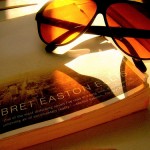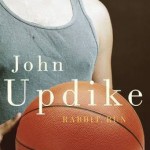University: a Novel Experience
Emily Nabney – 1st Year
Sense and Sensibility – Jane Austen
 First year is a bewildering, sometimes painful, but ultimately liberating experience. Just like the heroines of Austen’s Sense and Sensibility, you’re grappling with the problems of becoming an adult, as well as the ups and downs of independent living and first love.
First year is a bewildering, sometimes painful, but ultimately liberating experience. Just like the heroines of Austen’s Sense and Sensibility, you’re grappling with the problems of becoming an adult, as well as the ups and downs of independent living and first love.
Austen crafts a host of believable characters who could just as easily be alive now as in 1811 – who hasn’t encountered someone like Lucy Steele, whose apparent sweetness masks total bitchiness, or a lad as charming but commitment-phobic as Willoughby? Even though they have significantly less social freedom than freshers today, the headstrong, passionate Marianne and the restrained Elinor are such contrasting, well-realised protagonists that you’re almost guaranteed to relate to one or the other.
The heroines are uprooted from their family home and forced to live in reduced circumstances, like most first year students, and both struggle with homesickness. Forced to rely on their own judgement without parental guidance, both girls make some significant mistakes and misjudgements. But the characters learn and grow as a result of their experiences, which provides the comforting reassurance that however many lectures you’ve missed, nights out you can’t remember, or people you’ve misjudged, no mistake is ever irreparable. After all, there’s always next year.
[divider]
Alexandra Payne – 2nd Year
Less Than Zero – Easton Ellis
 This masterpiece of apathy and nihilism is probably a pretty frightening pick for the book of my second year.What’s more terrifying is that Easton Ellis managed to get it published at the age of 21 while still at college himself. 18 year old Clay returns home to LA after his first semester of college, and while his drug-fuelled and destructive life in 1980s Silicone Valley is a far cry from the Leamington Spa experience, his feelings of misplacement and disillusionment sum up that typically ‘student’ feeling of trying to fit yourself back into a place that you’ve grown out of.
This masterpiece of apathy and nihilism is probably a pretty frightening pick for the book of my second year.What’s more terrifying is that Easton Ellis managed to get it published at the age of 21 while still at college himself. 18 year old Clay returns home to LA after his first semester of college, and while his drug-fuelled and destructive life in 1980s Silicone Valley is a far cry from the Leamington Spa experience, his feelings of misplacement and disillusionment sum up that typically ‘student’ feeling of trying to fit yourself back into a place that you’ve grown out of.
It’s a deeply uncomfortable novel packed with vastly unsympathetic characters, but having put it down (distance is necessary to gauge one’s reaction to this – it gets pretty gruesome) I can’t help but think about how it taps in to something true and timeless about adolescent experience. Easton Ellis’ prose is full of the disdain and smart-assery of youth, and it is easy to recognise and relate to; Clay’s boredom at knowing everything there is to know, as well as his terror that he might not, seems strangely familiar.
[divider]
Ramsey Marwan – Finalist
Rabbit, Run – John Updike
 Trying to decide which book sums up my final year at Warwick wasn’t easy. I’d love to choose my favourite – On the Road – but I’d be lying if I said that this year had been a journey of self-discovery across 1950s America. I’ve opted for Updike’s Rabbit, Run – not because I’m a misogynist philanderer like Harry ‘Rabbit’ Angstrom – but because I would like to think that the lessons I’ve learnt from Updike’s novel somewhat reflect any maturation I may have undergone in my last year of University. Rabbit, Run was the first book I read for my course and three years later, we were asked to revisit it for a different class. Reading Rabbit’s constant flight from personal issues and responsibilities made me realise that I’ve also been guilty of some capricious behaviour throughout my time at university.
Trying to decide which book sums up my final year at Warwick wasn’t easy. I’d love to choose my favourite – On the Road – but I’d be lying if I said that this year had been a journey of self-discovery across 1950s America. I’ve opted for Updike’s Rabbit, Run – not because I’m a misogynist philanderer like Harry ‘Rabbit’ Angstrom – but because I would like to think that the lessons I’ve learnt from Updike’s novel somewhat reflect any maturation I may have undergone in my last year of University. Rabbit, Run was the first book I read for my course and three years later, we were asked to revisit it for a different class. Reading Rabbit’s constant flight from personal issues and responsibilities made me realise that I’ve also been guilty of some capricious behaviour throughout my time at university.
Although Rabbit’s personal narrative in no way reflects mine, I see in his character an inability to accept responsibility, something which we all may exhibit at some point throughout our lives. I can’t count the amount of times I considered throwing in the towel on my degree, whether it be in the early hours of the morning as I rushed to finish an essay or returning from a year abroad and genuinely debating whether I could see through another year on campus.
However, unlike Rabbit, I didn’t flee, and now I’m sat here with a degree in hand and a smile on my face.

Comments